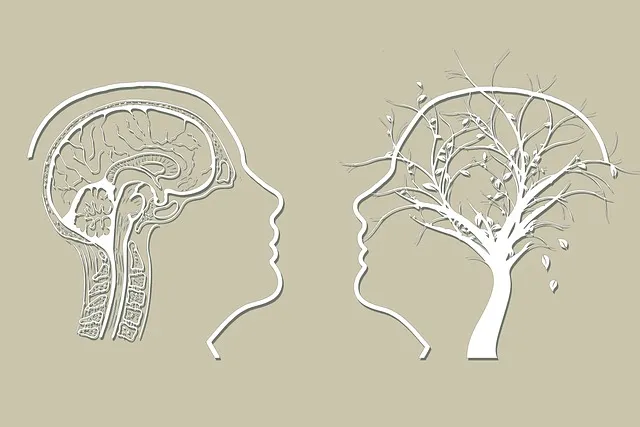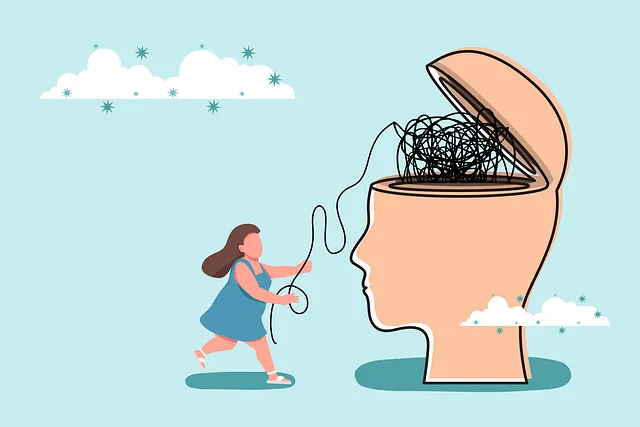Kaiser Permanente mental health locations in Lakewood emphasize the importance of coping skills in managing life's challenges. They offer tailored programs, expert guidance, and community support to help individuals develop resilience, reduce stress, and maintain mental wellness. Through services like Social Skills Training, mindfulness practices, physical activity, and self-care routines, these locations empower clients and healthcare professionals to navigate pressure, setbacks, and emotional turmoil effectively, fostering a supportive environment for better mental health.
Coping skills are essential tools for navigating life’s challenges. In today’s fast-paced world, stress and emotional turmoil are prevalent, making the development of effective coping strategies crucial. This article explores the significance of coping skills and provides insights into how individuals can enhance their resilience. We delve into evidence-based techniques taught by Kaiser Permanente mental health locations Lakewood to help people manage stress, regulate emotions, and foster a sense of calm. By understanding personal coping mechanisms, one can proactively build mental fortitude.
- Understanding Coping Skills and Their Significance
- The Role of Kaiser Permanente Mental Health Locations Lakewood in Promoting Coping Strategies
- Identifying Personal Coping Mechanisms and Resources
- Effective Techniques for Stress Management and Emotional Regulation
- Building Resilience: A Proactive Approach to Coping Skill Development
Understanding Coping Skills and Their Significance

Coping skills are the strategies we use to navigate life’s challenges and maintain our mental wellness. They play a pivotal role in managing stress, regulating emotions, and fostering resilience, especially in navigating difficult situations. At Kaiser Permanente mental health locations Lakewood, professionals emphasize the importance of developing robust coping mechanisms as part of holistic treatment plans.
Understanding and cultivating effective coping skills can significantly improve one’s ability to handle pressure, setbacks, and emotional turmoil. This is particularly crucial in today’s fast-paced world, where Mental Health Awareness has become a pressing issue. Social Skills Training, for instance, equips individuals with the capacity to interact healthily with others, which is essential for building support systems and fostering positive relationships—key components of a healthy mental state.
The Role of Kaiser Permanente Mental Health Locations Lakewood in Promoting Coping Strategies

Kaiser Permanente mental health locations Lakewood play a pivotal role in equipping individuals with effective coping strategies. These facilities offer a comprehensive range of services designed to enhance self-awareness and resilience, two key components in managing stress and adversity. Through tailored programs and expert guidance, they empower clients to navigate life’s challenges more effectively.
One notable aspect is their commitment to Mental Health Education Programs Design that cater to diverse audiences. These programs raise public awareness about mental health issues, promote understanding, and provide practical tools for coping. Additionally, Kaiser Permanente’s involvement in Public Awareness Campaigns Development further extends their impact, fostering a supportive community environment where individuals feel encouraged to seek help and share their stories.
Identifying Personal Coping Mechanisms and Resources

Identifying your unique coping mechanisms is a powerful step in maintaining mental wellness, especially in demanding fields like healthcare. Kaiser Permanente mental health locations Lakewood offer resources to support this journey. These might include activities like exercise, meditation, or creative outlets that help individuals unwind and manage stress effectively. Recognizing what works best for you can significantly impact burnout prevention strategies for healthcare providers.
In the hustle and bustle of daily life, it’s essential to discover and tap into these personal resources. The Mental Wellness Podcast Series Production often highlights various coping techniques, offering insights into different approaches. Additionally, mental illness stigma reduction efforts have made it safer for individuals to explore and share their healthy coping habits, fostering an environment where everyone can learn from each other.
Effective Techniques for Stress Management and Emotional Regulation

Stress management is a vital component of maintaining mental wellness, and with the support of Kaiser Permanente mental health locations Lakewood, individuals can discover effective techniques to regulate emotions and navigate life’s challenges. One powerful strategy involves mindfulness practices, such as meditation and deep breathing exercises, which have been shown to reduce stress levels and improve overall emotional well-being. By fostering self-awareness through these exercises, individuals can better understand their triggers and develop healthier coping mechanisms.
Additionally, engaging in physical activity and adopting healthy lifestyle habits play a significant role in stress reduction. Regular exercise releases endorphins, which act as natural painkillers and promote feelings of happiness. Public awareness campaigns development focused on mental health encourage people to prioritize self-care, leading to better emotional regulation and overall resilience.
Building Resilience: A Proactive Approach to Coping Skill Development

Building resilience is a proactive strategy that empowers individuals to develop robust coping skills and enhance their overall well-being, especially in challenging circumstances. This approach emphasizes self-care routine development as a fundamental aspect of maintaining good mental health, akin to what professionals at Kaiser Permanente mental health locations Lakewood promote. By integrating self-care practices into daily life, individuals can better regulate their moods and manage stressors effectively.
For mental health professionals, risk management planning is crucial in addition to self-care routine development. This involves setting boundaries, prioritizing personal time, and engaging in activities that foster relaxation and renewal. Such proactive measures not only safeguard the professional’s mental health but also enhance their ability to support clients, creating a positive feedback loop that benefits both the caregiver and the care recipient.
Coping skills development is an essential aspect of maintaining mental well-being, especially in stressful times. As highlighted by the expertise of Kaiser Permanente mental health locations Lakewood, fostering resilience and effective coping strategies can significantly improve overall quality of life. By understanding personal coping mechanisms, identifying resources, and adopting proven techniques for stress management and emotional regulation, individuals can navigate challenges with greater ease. Building proactive coping skills is a powerful way to enhance mental agility and create a more balanced and fulfilling life.






